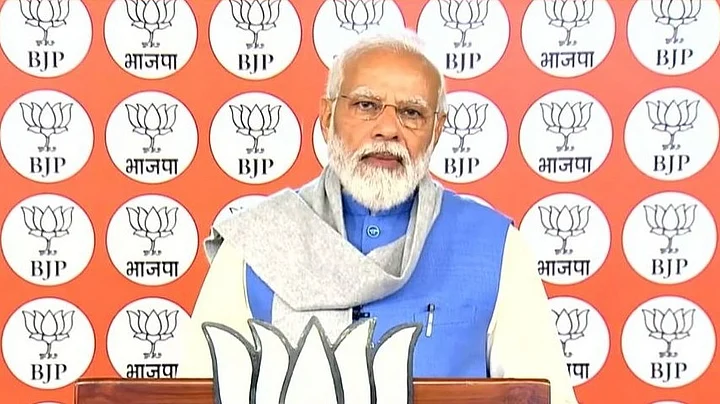The phrase ‘silence speaks volumes’ is very familiar in common parlance. But, when it is a question of silence on actions or decisions that adversely affect the lives of lakhs and lakhs of people who pin their hopes and aspirations on the fair and just functioning of government institutions, then the silence is resounding, deafening, and echoes in the minds of people for a long time to come. In such cases, the silence of those who lead those institutions, and the state, in particular, becomes poignant.
The prime minister’s silence on the terror attacks in Jammu, and in the past on instances of mob lynchings, horrific rape cases, deplorable discriminatory practices against minorities, hate speech, violence and atrocities in Manipur, the cases of sexual misconduct against the wrestlers who did the country proud, and now the anomalies in the NEET-UG case, are just some of the examples that come to mind.
But, why must a leader speak up in the face of mishaps and unjust happenings that are the result of, perhaps, not so well thought out policies or their ineffective implementation? After all, ‘to err is human’ and mistakes are made even by the most astute of leaders. And, as the saying goes, ‘silence is golden’; perhaps, it is wiser to maintain silence than to take responsibility. But how far and at what cost, that is the question here.
Speaking up is ‘owning up’, accepting the moral responsibility — be it direct or indirect — of one’s actions. In matters of governance, where policy decisions have vast implications on the lives of those who are being governed, the importance of responsibility, both collective and individual (of the leader) cannot be underestimated or overlooked. To not acknowledge this fact is to betray the trust and faith that people repose in their democratically elected government.
But, unfortunately, maintaining a stark silence on lapses, corrupt practices, and systemic failures, while speaking up or engaging with the public on cherry-picked instances of systemic successes is what Indian citizens are often witness to.
It is interesting to understand why this happens and there may be many reasons explaining it including political compulsions. But, there are also some moral reasons.
There is ‘Akrasia’, which is the Greek term for the mental state where one acts against one’s knowledge of right and wrong owing to a weakness of will and does not speak up against the wrong believing that accepting one’s mistake is the sign of a ‘weak leader’.
Then there is epistemic arrogance, which is the attitude of ‘I know it all’ or ‘better than others’, where others' views are inconsequential in the power equation and there is a belief in one’s own supremacy or godliness, even to the extent of publicly denying one’s ‘biological’ origins!
Sometimes, it can be about belittling a mishap, for example, civilians killed in terror attacks, as ’collateral damage’ of an otherwise sound policy (the double effect theory in philosophy). Sometimes, it can be about highlighting the positive gains and the ‘larger good’ intended, even if it comes with some political dishonesty, i.e., adopting the cost-benefit justification to get off the moral hook.
There is the vulnerability of the masses, hoping that people will forget the present problems when faced with a new one. And finally, passing the moral buck and banking on ‘collective responsibility’, i.e., the all-time bailer!
These reasons have played a role in explaining the silence of leaders both past and present. notwithstanding their political affiliations. But, when there are too many such instances of ‘stoic silence’, it belies the trust and faith reposed in the leader, crushing the very basis of democracy which is built on these two virtues.
This, unfortunately, is happening in our country. Undoubtedly, mistakes happen, but to not own up to one’s mistakes, to not accept responsibility and accountability in the first instance, is nothing short of moral arrogance. Leadership must have a human face where there is acceptance of vulnerability, liability of error in judgement, and empathy for those adversely affected by one’s decisions and actions, or even by failure of policy or security.
Accepting responsibility is not necessarily the admittance of guilt but the magnanimity of leadership and statesmanship.
World history is replete with reparations, public apologies, and regrets made by governments and other institutions for crimes committed by their predecessors. Surely, a public apology or regret and accepting responsibility is the minimum that can be expected from a government or its head for atrocious crimes happening during its regime.
If those in power do not speak up, it’s time that the people do, for their silence at the top is deafening.
[Dr. (Ms.) Shashi Motilal (Retd.) Professor of Philosophy, Department of Philosophy, University of Delhi, India, obtained her PhD from the State University of New York (SUNY) at Buffalo, USA in 1986. She has been Visiting Faculty at the University of Akron , Ohio, USA and Carleton University, ON, Canada, TERI University, New Delhi and IIT/Delhi and IISP, New Delhi. This is an opinion piece and the views expressed above are the author’s own. The Quint neither endorses nor is responsible for the same.]
(At The Quint, we question everything. Play an active role in shaping our journalism by becoming a member today.)
